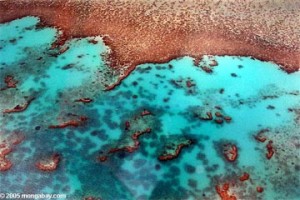The world’s oceans absorb around one third of the carbon released into the atmosphere as a result of human activities – a factor that has contributed to oceans becoming increasingly acidic.
 And while physically removed from the main sources of anthropogenic carbon dioxide, New Zealand could be more susceptible to the impacts of ocean acidification as carbon dioxide is more soluble in colder water. The changes experienced over the coming decades therefore could be more acute in the colder waters surrounding New Zealand than in more tropical waters.
And while physically removed from the main sources of anthropogenic carbon dioxide, New Zealand could be more susceptible to the impacts of ocean acidification as carbon dioxide is more soluble in colder water. The changes experienced over the coming decades therefore could be more acute in the colder waters surrounding New Zealand than in more tropical waters.
Little is yet known about the specific impacts increasing acidity will have in New Zealand waters, how our marine ecosystem is and will continue to be affected and how our $300 million shellfish industry will fare as acidification increases.
An “emerging issues” paper on ocean acidification to be released on Tuesday by the Royal Society of New Zealand lays out the issues scientists and policy makers face in determining the environmental and economic implications of increasing ocean acidification.
The Science Media Centre held an online briefing with the authors of the paper at 10.30am on Tuesday, allowing journalists interested in the topic to dial in from their desks to listen to an audio conference and view a simultaneous web-based presentation.
Listen to the briefing by clicking on the audio player below:
[audio:https://www.sciencemediacentre.co.nz/wp-content/upload/2009/05/ocean-acidification-briefing.mp3]The briefing discussed the following questions:
– What do we know about how marine ecosystems and individual species respond to acidification?
– What measures will need to be taken to adapt to ocean acidification?
– What stage is local research at and where do we need to focus future research efforts?
Registered journalists can log into the SMC Resource Library to access the research and presentation slides.
SPEAKERS:
Professor Keith Hunter: Head of the Chemistry Department at Otago University. Member of the Royal Society of New Zealand Advisory Committee on Marine Science and an expert in marine chemistry and the biogeochemistry of trace metals.
Dr Philip Boyd: NIWA principal scientist involved in the Centre for Chemical and Physical Oceanography at Otago University.